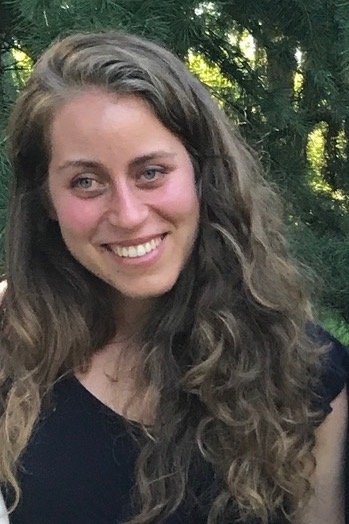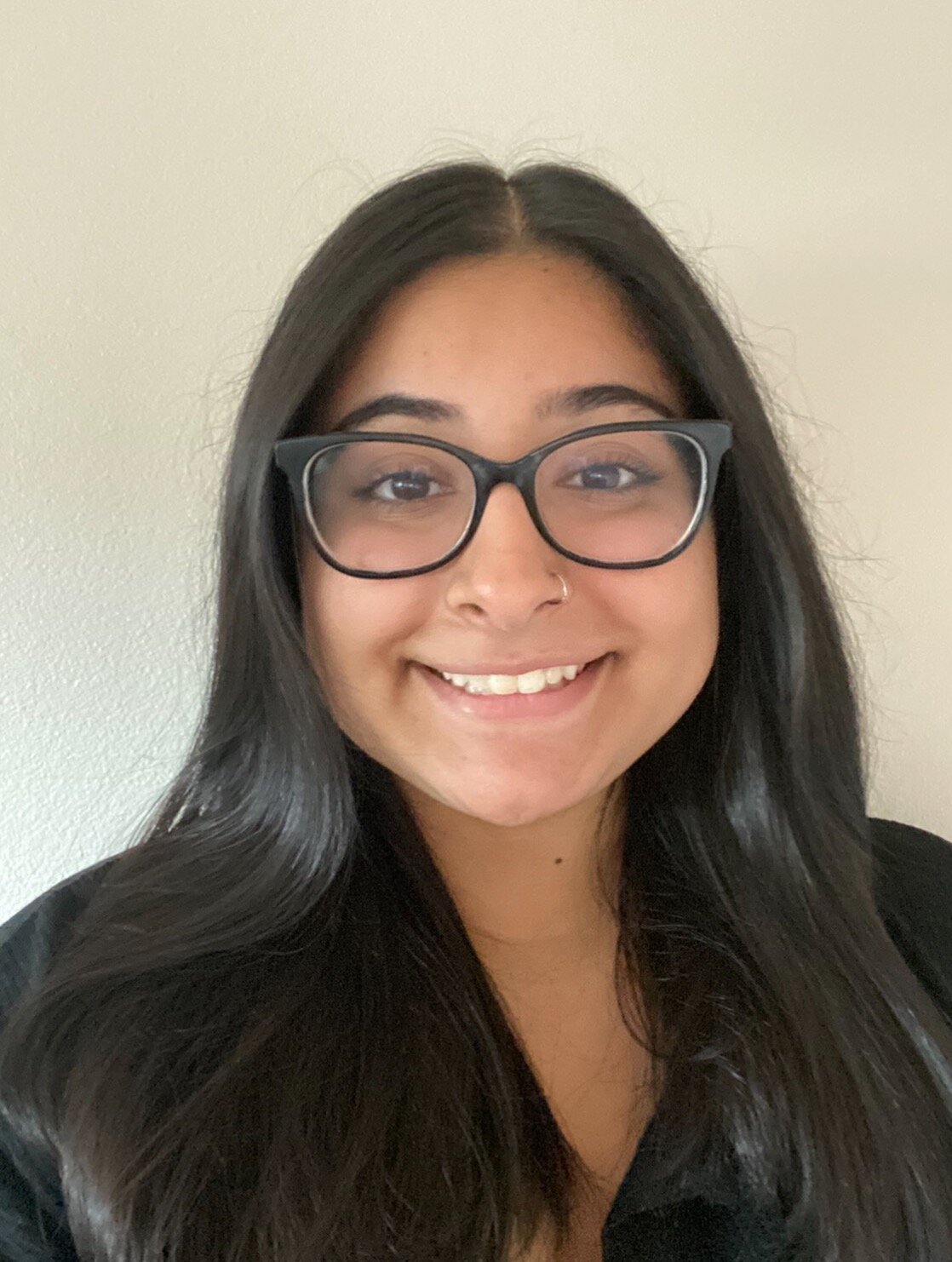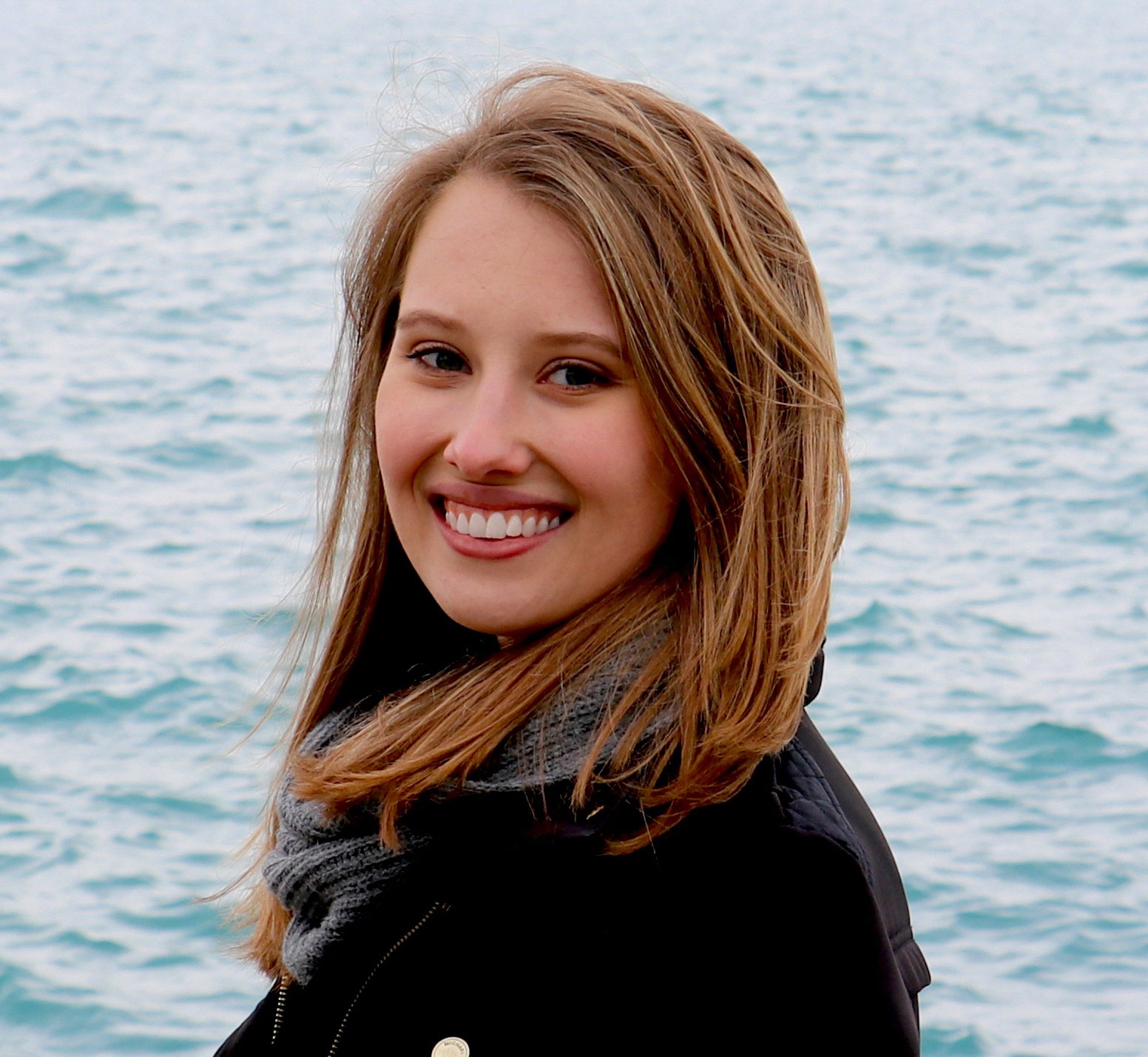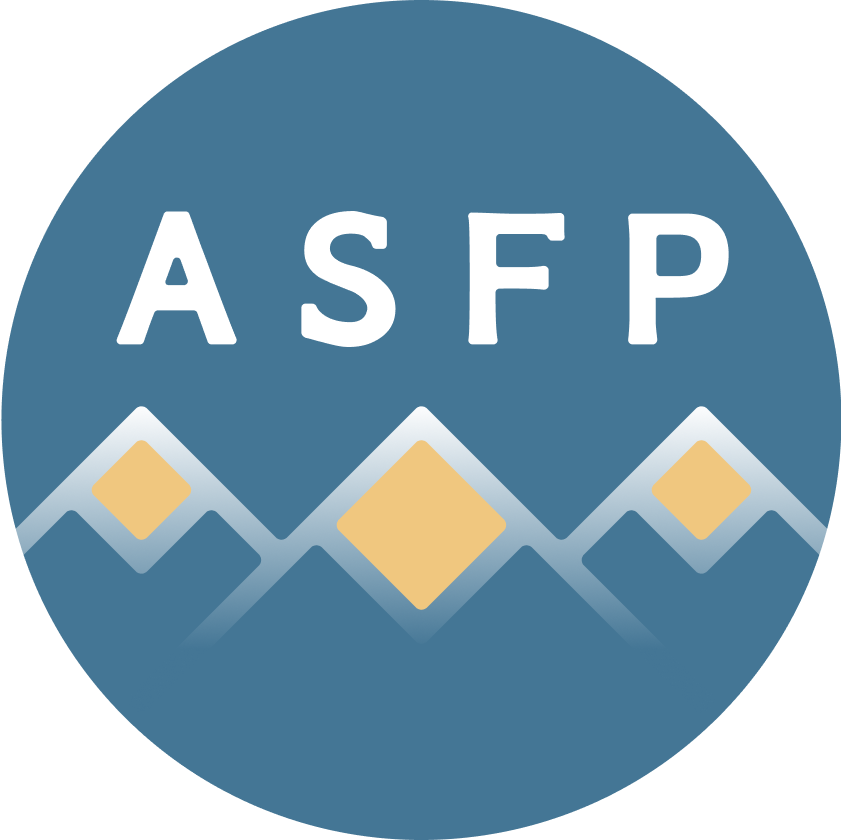ABOUT ASFP
ASFP Receives Award!
In August 2023, the Society for the Improvement of Psychological Science (SIPS) awarded ASFP a Mission Award for our efforts to improve psychological science! “SIPS Mission Awards recognize and increase awareness of a limited number of exemplary products that further the SIPS mission… [to] improve methods and practices in psychological science.”
Why Application Statements?
The Application Statement Feedback Program (ASFP) is intended to help address a challenging moment in a new psychological scientist’s career: when they apply to PhD programs. Graduate school applications differ from college applications or job applications in ways that are opaque to many applicants.
This is a critical juncture. Our goal is to help PhD applicants get closer to writing the application statement that makes the strongest case for their admission, with a focus on applicants who identify as an underrepresented minority and/or as someone who does not have access to mentors informed about the PhD application process.
Good statements are vital to successful graduate applications. It’s where you make your case! But they’re also hard to write, because they must balance many goals in a small space. Statements are supposed to tell your story and make sense of your varied experiences. They’re supposed to sing your strengths and explain your weaknesses. They should be interesting and well-written. They establish why you think grad school is for you, how you know you’re going to succeed in a PhD program, why you’re a good fit for a specific mentor/program/institution, and more.
Of course, we, as a field, should be offering support to young scientists from diverse backgrounds both before and after the application process. There’s much to be done to improve early mentoring, access to research experiences, support once in graduate school, and more - but every aspiring psychological scientist writes one of these statements at some point, and that statement can be the difference between receiving an offer, being waitlisted, or being rejected. It’s a pivotal moment.
We believe that inclusion leads to excellence. We therefore hope that by supporting PhD applicants in psychology (especially those who identify as an underrepresented minority and/or who are not ‘in the know’) to write the best statements they can, we can help bring a broader and more diverse range of new scientists into our field, and make psychological science better.
The ASFP 2024 Core Team
The ASFP Core Team is composed of faculty, postdoctoral researchers, and graduate students in psychology. We all recognize how much we have benefited, at different stages of our careers, from writing guidance and support - and want to pass that on in a way that moves our field closer to ideals of equity and inclusion.
The Core Team coordinates and implements ASFP, including answering questions, recruiting, training & supporting editors, writing this website, doing social media outreach, and designing and implementing our process, among other things.
The Core Team is divided into four main collaborative groups: the Applicant Group, Editor Group, Feedback Review Group, and Infrastructure.
The team is listed by role and then in alphabetical order by last name below.
-

Peter Sokol-Hessner, PhD
he/him/his
EXECUTIVE DIRECTORUniversity of Denver, Department of Psychology.
Peter is an associate professor in the Affect, Social, and Cognitive Area and PI of the Sokol-Hessner Lab. He co-founded and led the inaugural ASFP in the fall of 2020 and continues to oversee ASFP’s growth as we look up and ahead.
-

Tessa Benson-Greenwald, PhD
she/her/hers
DIRECTOR, APPLICANT GROUPUniversity of Pittsburgh, Learning, Research, and Development Center.
Tessa is a social psychology postdoctoral fellow in the Learning, Research, and Development Center at University of Pittsburgh, and has been the Director of the Applicant Group since 2023.
-

Mary DePascale, PhD
she/her/hers
CO-DIRECTOR, FEEDBACK REVIEW GROUPUniversity of Albany, Department of Educational & Counseling Psychology.
Mary is an assistant professor at the University at Albany in the Department of Educational & Counseling Psychology.
-

Ari Dyckovsky
he/him/his
DIRECTOR, INFRASTRUCTUREPrinceton University, Department of Psychology.
Ari is a PhD candidate in the Cognition in Collectives Lab. He created and leads development of the infrastructure and tools that enable ASFP by effectively connecting our applicants, editors, and the core team.
-

Miriam Sheynblyum
she/her/hers
DIRECTOR, EDITOR GROUPUniversity of Florida, Department of Clinical and Health Psychology.
Miriam is a third-year clinical psychology PhD student at the University of Florida working with Dr. Rebecca Pearl in the Body Image and Stigma Lab.
-

Emma Tinney
she/her/hers
CO-DIRECTOR, FEEDBACK REVIEW GROUPNortheastern University, Center for Cognitive and Brain Health
Emma is a fourth-year PhD candidate mentored by Charles Hillman and Timothy Morris. She studies the bidirectional relationship between lifestyle behaviors and brain health in patient populations such as traumatic brain injury & dementia.
-

Giulia Borriello, PhD
she/they
FEEDBACK REVIEW GROUPKent State University, Department of Educational Psychology
Giulia is an assistant professor in Educational Psychology at Kent State University.
-

Rachel Brough
she/her/hers
FEEDBACK REVIEW GROUPUniversity of Denver, Department of Psychology.
Rachel is a third-year PhD student in the Affect, Social, and Cognitive Area working with Dr. Kimberly Chiew in the Motivation, Affect, & Cognition Lab.
-

Emily Cohodes
she/her/hers
EDITOR GROUPYale University, Department of Psychology
Em is a PhD Candidate in Clinical Psychology at Yale working with Dr. Dylan Gee in the Clinical Affective Neuroscience and Development Lab.
-

Shiba Esfand
she/her/hers
APPLICANT GROUPUniversity of California Los Angeles, Department of Psychology.
Shiba is a second year Clinical Psychology PhD student at UCLA working under the mentorship of Dr. Bridget Callaghan in the Brain and Body Lab. She is also a mentor for the NextGen Psych Scholars program.
-

Rose Guingrich
she/her/hers
EDITOR GROUPPrinceton University, Department of Psychology, Department of Social Policy.
Rose Guingrich is a PhD candidate at Princeton University in the Psychology and Social Policy departments. She studies human-AI interaction with Michael Graziano and Alin Coman.
-

Nick Kathios
he/him/his
FEEDBACK REVIEW GROUP
Northeastern University, Department of Psychology.Nick is a third-year psychology PhD student at Northeastern University working with Psyche Loui in the Music, Imaging, and Neural Dynamics (MIND) Lab.
-

Eliza Kramer
she/her/hers
EDITOR GROUPUniversity of Denver, Department of Psychology.
Eliza is a sixth-year clinical psychology PhD student working with Lauren McGrath in the LEARN Lab.
-

Erik Nook, PhD
he/they
EDITOR GROUPPrinceton University, Department of Psychology.
Erik is an Assistant Professor at Princeton University in the Department of Psychology and the PI of the Logic of Emotion Lab.
-

Kaylee Null
she/her/hers
APPLICANT GROUPUniversity of California, Los Angeles, Department of Psychology
Kaylee is a third-year clinical psychology PhD student at the University of California, Los Angeles. She works under the mentorship of Dr. Michelle Craske in the Anxiety and Depression Research Center.
-

Simrat Samra
she/her/hers
APPLICANT GROUPUniversity of Denver, Department of Psychology.
Simrat is a fourth-year PhD student in the Affect, Social, and Cognitive Area working with Dr. Paige Lloyd in the Social Detection Lab.
-

Helen Schmidt
she/her/hers
APPLICANT GROUPTemple University, Department of Psychology & Neuroscience
Helen is a fourth-year social psychology PhD student working with Chelsea Helion in the Social and Affective Neuroscience Lab.
-

Rebecca (Becky) Suzuki
she/her/hers
APPLICANT GROUPUniversity of Denver, Department of Psychology.
Becky is a fifth-year clinical psychology PhD student working with Anne DePrince in the Traumatic Stress Studies Group. Becky was the Director of the Applicant Group in 2021 and 2022.
Past Teams
ASFP 2024 Team
In our fifth and biggest year yet, 803 eligible psychology PhD applicants submitted their materials. To prepare for them, we trained 273 psychological scientists to be editors and provide actionable, consistent, and supportive feedback on application statements. We were able to match 606 applicants with at least two editors (the majority of which were matched with at least one faculty editor). Our editors provided a total of 1,392 pieces of expert feedback, carefully reviewed by 26 feedback reviewers to ensure everyone got uniformly excellent feedback. In all, editors spent over 700 cumulative hours volunteering to provide feedback to our applicants and future colleagues. ASFP was yet again 100% supported by volunteers - everyone, from the editors to the feedback reviewers and core team members was a volunteer, collectively working to support as many applicants as we possibly could.
Core Team
ASFP is organized and led by the Core Team. These PhD students, postdocs, and faculty volunteer significant amounts of time and energy to plan, troubleshoot, and execute every aspect of ASFP at a high level, including applicant advertising, editor recruitment, editor training, the creation and maintenance of the core operational system that enables large-scale double-blind matching, quality assurance checks, editor support during the edit-a-thon, and the resources provided to editors and applicants. The 2024 Core Team is listed above.
Feedback Reviewers
All 1,392 pieces of feedback were carefully reviewed by Core Team members and a special group of ASFP Feedback Reviewers to ensure that the feedback that applicants received lived up to ASFP’s values and goals. You can view a list of the 2024 ASFP Feedback Reviewers here.
Editors
You can view lists by category of all of the 273 editors from across North America who took part in ASFP: Clinical, Cognitive, Developmental, Social.
ASFP 2023 Team
Our fourth year was the biggest yet by far! We recruited and trained 235 editors from all across the country (PhD students, postdocs, and faculty). 850 eligible applicants submitted materials to ASFP, and we were able to match 562 of them with at least 2 editors. In the next seven days, our editors put in over 600 hours of total work, providing 1,203 double-blind, expert statement reviews to applicants one week later. This mammoth undertaking was made possible by a dedicated team of volunteers from academia - graduate students, postdocs, and faculty, in roles as Core Team members, Feedback Reviewers, and Editors. As every year, ASFP was provided free of charge to applicants.
Core Team
ASFP is organized and led by the Core Team. These PhD students, postdocs, and faculty volunteer significant amounts of time and energy to plan, troubleshoot, and execute every aspect of ASFP at a high level, including applicant advertising, editor recruitment, editor training, the creation and maintenance of the core operational system that enables large-scale double-blind matching, quality assurance checks, editor support during the edit-a-thon, and the resources provided to editors and applicants. Core Team leaders are highlighted.
Peter Sokol-Hessner, PhD (Executive Director; University of Denver)
Ari Dyckovsky (Core Systems Director; Princeton University)
Tessa Bendson-Greenwald, PhD (Applicant Group Director; University of Pittsburgh)
Becky Suzuki (Applicant Group; University of Denver)
Simrat Samra (Applicant Group; University of Denver)
Deborah Han (Applicant Group; University of Denver)
Helen Schmidt (Applicant Group; Temple University)
Kaylee Null (Applicant Group; University of California Los Angeles)
Hayley Brooks, PhD (Editor Group Director; Brown University)
Emily Cohodes (Editor Group; Yale University)
Eliza Kramer (Editor Group; University of Denver)
Erik Nook, PhD (Editor Group; Princeton University)
Miriam Sheynblyum (Editor Group; University of Florida)
Michelle Rozenman, PhD (Feedback Review Group Director; University of Denver)
Mary DePascale, PhD (Feedback Review Group; Boston College)
Nick Kathios (Feedback Review Group; Northeastern University)
Emma Tinney (Feedback Review Group; Northeastern University)
Giulia Borriello, PhD (Feedback Review Group; Kent State University)
Feedback Reviewers
All 1,203 pieces of feedback were carefully reviewed by Core Team members and a special group of ASFP Feedback Reviewers to ensure that the feedback that applicants received lived up to ASFP’s values and goals. You can view a list of the 2023 ASFP Feedback Reviewers here.
Editors
You can view lists by category of all of the 235 editors from across North America who took part in ASFP: Clinical, Cognitive, Developmental, Social.
ASFP 2022 Team
In its third year, ASFP continued its growth and added a specific group dedicated to facilitating the effective review of the feedback coordinated by the program: the Feedback Review Group. Of the 371 people who applied to ASFP from all over the world, we were able to match 305 of them with at least two editors each in a double-blind process. As in prior years, we supported four areas of psychology: clinical, cognitive, developmental, and social psychology, prioritizing applicants with limited access to mentorship and/or from underrepresented minorities. We trained 200 editors (new and returning!) from 89 institutions across the United States. ASFP coordinated and quality-assured the smooth delivery of a total of 717 pieces of feedback, all of which were received by applicants in detailed feedback reports 8 days after the application statement submission portal closed. The below Core Team members, Feedback Reviewers, and Editors were critical in this tremendous undertaking! As always, ASFP was an all-volunteer effort that was provided free to applicants.
Core Team
Peter Sokol-Hessner, PhD (Executive Director; University of Denver)
Ari Dyckovsky (Core Systems Director; Princeton University)
Becky Suzuki (Applicant Group Director; University of Denver)
Tessa Benson-Greenwald, PhD (Applicant Group; University of Pittsburgh)
Simrat Samra (Applicant Group; University of Denver)
Deborah Han (Applicant Group; University of Denver)
Hayley Brooks (Editor Group Director; Brown University, Previously University of Denver)
Kathryn Fox, PhD (Editor Group; University of Denver)
Eliza Kramer (Editor Group; University of Denver)
Paige Lloyd, PhD (Editor Group; University of Denver)
Erik Nook, PhD (Editor Group; Princeton University)
Michelle Rozenman, PhD (Feedback Review Group Director; University of Denver)
Mary DePascale, PhD (Feedback Review Group; Boston College)
Nick Kathios (Feedback Review Group; Northeastern University)
Emma Tinney (Feedback Review Group; Northeastern University)
Feedback Reviewers
All of the 717 pieces of feedback were carefully reviewed by Core Team members and a special group of ASFP Feedback Reviewers to ensure that the feedback that applicants received lived up to ASFP’s values and goals. You can view a list of the 2022 ASFP Feedback Reviewers here.
Editors
You can view lists by category of all of the 200 editors from 89 institutions across the United States who took part in ASFP here: Clinical, Developmental, Social, and Cognitive.
ASFP 2021 Team
In its second year, ASFP dramatically expanded from being a one-department initiative to operating on a national scale. Of the 313 people who applied to ASFP from all over the world, we were able to match 272 of them with at least two editors each in a double-blind process. We supported four areas of psychology: clinical, cognitive, developmental, and social psychology, prioritizing applicants with limited access to mentorship and/or from underrepresented minorities. We trained 184 editors (new and returning!) from 70 institutions across the United States. ASFP coordinated and quality-assured the smooth delivery of a total of 648 pieces of feedback, all of which were received by applicants in detailed feedback reports less than 6 days after the application statement submission portal closed. The below Core Team members, Feedback Reviewers, and Editors were critical in this tremendous undertaking! As in 2020, ASFP 2021 was an all-volunteer effort that was provided free to applicants.
Core Team
ASFP is organized and led by the Core Team. These PhD students and faculty volunteer significant amounts of time and energy to plan, troubleshoot, and execute every aspect of ASFP at a high level, including applicant advertising, editor recruitment, editor training, the creation and maintenance of the core operational system that enables large-scale double-blind matching, quality assurance checks, editor support during the edit-a-thon, and the resources provided to editors and applicants. Core Team leaders are highlighted.
Peter Sokol-Hessner, PhD (Executive Director; University of Denver)
Ari Dyckovsky (Core Systems Director; Princeton University)
Becky Suzuki (Applicant Group Director; University of Denver)
Tessa Benson-Greenwald (Applicant Group; Indiana University Bloomington)
Laurel Gabard-Durnam, PhD (Applicant Group; Northeastern University)
Simrat Samra (Applicant Group; University of Denver)
Deborah Seok (Applicant Group; University of Denver)
Hayley Brooks (Editor Group Director; Brown University, Previously University of Denver)
Kathryn Fox, PhD (Editor Group; University of Denver)
Fallon Goodman, PhD (Editor Group; University of South Florida)
Eliza Kramer (Editor Group; University of Denver)
Paige Lloyd, PhD (Editor Group; University of Denver)
Erik Nook, PhD (Editor Group; Yale University)
Michelle Rozenman, PhD (Editor Group; University of Denver)
Feedback Reviewers
All of the 648 pieces of feedback were carefully reviewed by Core Team members and a special group of ASFP Feedback Reviewers to ensure that the feedback that applicants received lived up to ASFP’s values and goals. You can view a list of the 2021 ASFP Feedback Reviewers here.
Editors
You can view lists by category of all of the 184 editors from 70 institutions across the United States who took part in ASFP here: Clinical, Developmental, Social, and Cognitive.
ASFP 2020 Team (inaugural year)
In its inaugural year, 281 people applied to ASFP, which was supported entirely by volunteer editors and core team members from the University of Denver’s Department of Psychology. We matched 45 volunteer editors with 155 applicants on the basis of mutual interest & expertise across 5 different areas of psychology, prioritizing applicants with limited access to mentorship and/or from underrepresented minorities. Each applicant received detailed, constructive feedback on their statement from two editors just over 3.5 days after submissions closed, for a total of 310 pieces of feedback. Click here to read a summary of applicants’ experiences. The below Core Team members and Editors were instrumental to this success.
Founding Core Team
The founding Core Team came up with the idea for ASFP, the way to carry it out, and executed it in an extremely short amount of time. These people simultaneously invented and did the inaugural ASFP in an intense collaborative team effort. All Core Team Members were at the University of Denver at the time.
Hayley Brooks
Ari Dyckovsky
Eliza Kramer
Paige Lloyd
Peter Sokol-Hessner
Deborah Seok
Becky Suzuki
Editors
You can find a page listing all of the volunteer ASFP 2020 Editors by name and expertise here.
Lynee Alves
Nina Anderson
Özlü Aran
Vicky Atzl
Melissa Brewster
Hayley Brooks
Kimberly Chiew
Maria-Ernestina Christl
Spencer Dobbs
Jena Doom
Gorkem Er
Kathryn Fox
Wyndol Furman
Jill Holm-Denoma
Sarah Huff
Emily Jones
Nadia Kako
Deborah Seok
Becca Slomowitz
Peter Sokol-Hessner
Daniel Storage
Anni Subar
Kevin Summers
Rebecca Suzuki
Cassie Svelnys
Tim Sweeny
Max Weisbuch
Naomi Wright
Pilyoung Kim
Eliza Kramer
Paige Lloyd
Erika Manczak
Howard Markman
Delaney McDonagh
Lauren McGrath
Jill Merrick
Elly Miles
Summer Millwood
Gina Paganini
Genevieve Patterson
Kim-Chi Pham
Christy Rossi
Michelle Rozenman
Alex Rubin
Sam Scott
Transparency
At ASFP, we value transparency. Want to know more about us, our policies, what it’s like to be an ASFP applicant or editor, and more? You’ve come to the right place. While these documents are linked in many different locations on this site, we’ve collated some of them here for ease of reference. Reach out to us at team@asfp.io if you have further questions!
ASFP 2020 Applicant Report
ASFP 2021 Applicant Report
ASFP 2022 Applicant Report
ASFP 2023 Applicant Report
ASFP 2021 Editor Report
ASFP 2022 Editor Report
ASFP 2023 Editor Report
